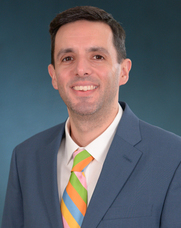 A Message from Paul Krupski, Director of Opioid Initiatives
Happy New Year! A new year is a good opportunity to take stock of what you've accomplished in the previous year, and what you hope to accomplish in the year ahead. As Wisconsin continues to fight the state's opioid crisis, we can be proud of the strides we've made toward that effort in 2017. Here are some of the highlights.
• January 2017, saw the launch of the enhanced Prescription Drug Monitoring Program. DHS worked with the Department of Safety and Professional Services to promote this service that ensures safe prescribing of opioids and medications that may not be compatible with the prescription painkillers.
• In April, use of PDMP became mandatory.
• In May, DHS received a $7.6 million State Targeted Response (STR) grant from the federal government. That money is already being used for prevention, treatment, and recovery efforts on the local level.
• In July, Governor Scott Walker signed 11 Heroin and Opiate Prevention and Education (HOPE) Agenda and other bills recommended by his Task Force on Opioid Abuse into law. DHS also awarded nearly $2.4 million in grants to 16 counties and tribal nations to increase treatment services for opioid abuse.
• In October, DHS added opioid data to the Wisconsin Interactive Statistics on Health (WISH) query system. This allows anyone to see data on opioid deaths and hospitalizations, and gives us a better understanding as to where to best place our time and resources in fighting the epidemic.
• Also In October, DHS and the Department of Justice shared guidance for first responders to avoid exposure to fentanyl and other synthetic opioids.
• In November, I joined DHS as its Director of Opioid Initiatives. Since then, I've had the privilege to meet many of you who work daily to end the devastation opioid abuse has had on families, friends, and communities.
Your work inspires me and our team to continue the many statewide efforts and explore new and innovative solutions that move us toward our goals. I'm looking forward to sharing our progress with you as we move forward in 2018.
Please share this newsletter with people who are interested in combating the opioid epidemic in Wisconsin. They can sign up to receive this quarterly newsletter on the DHS website.
|